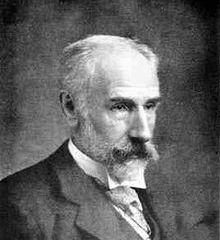John Maynard Keynes Quotes - Page 8
John Maynard Keynes, Royal Economic Society (Great Britain) (1971). “The Collected Writings of John Maynard Keynes: Essays in biography”
John Maynard Keynes (2016). “Indian Currency and Finance: The Economist”, p.58, 北戴河出版
John Maynard Keynes (2016). “The Economic Consequences of the Peace”, p.118, Skyhorse Publishing, Inc.
John Maynard Keynes (2016). “The Economic Consequences of the Peace: The Economist”, p.16, 北戴河出版
John Maynard Keynes (2016). “The Economic Consequences of the Peace: The Economist”, p.10, 北戴河出版
The forces of the nineteenth century have run their course and are exhausted.
John Maynard Keynes (1929). “The Economic Consequences of the Peace: The classic text on the Treaty of Versailles and post war Europe”, p.150, Harriman House Limited
"The Economic Consequences of the Peace".
The Class war will find me on the side of the educated bourgeoisie.
John Maynard Keynes (1952). “Essays in Persuasion”
"The General Theory of Employment, Interest and Money". Book by John Maynard Keynes, Book 4, Chapter 17, Section 3, p. 234, February 1936.
John Maynard Keynes (2006). “General Theory Of Employment , Interest And Money”, p.326, Atlantic Publishers & Dist
John Maynard Keynes (2006). “General Theory Of Employment , Interest And Money”, p.75, Atlantic Publishers & Dist
John Maynard Keynes (2006). “General Theory Of Employment , Interest And Money”, p.346, Atlantic Publishers & Dist
But the dreams of designing diplomats do not always prosper, and we must trust the future .
John Maynard Keynes (2016). “The Economic Consequences of the Peace”, p.53, Skyhorse Publishing, Inc.
John Maynard Keynes, Royal Economic Society (Great Britain) (1971). “The collected writings of John Maynard Keynes”
John Maynard Keynes (1929). “The Economic Consequences of the Peace: The classic text on the Treaty of Versailles and post war Europe”, p.140, Harriman House Limited
John Maynard Keynes (1929). “The Economic Consequences of the Peace: The classic text on the Treaty of Versailles and post war Europe”, p.47, Harriman House Limited
"The General Theory of Employment, Interest and Money". Book by John Maynard Keynes, Preface to the German Edition, February, 1936.
John Maynard Keynes (2016). “The Economic Consequences of the Peace: The Economist”, p.10, 北戴河出版







